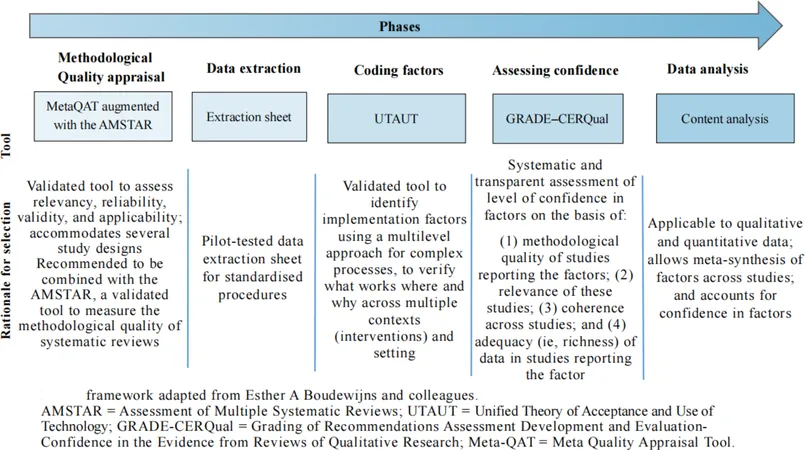
Start Sipping! Coffee and Tea May Slash Your Risk of Head and Neck Cancers
2024-12-24
Author: Yu
Recent scientific investigations have revealed a potentially life-saving reason to enjoy your morning cup of joe or a soothing cup of tea. A comprehensive study analyzed data from 14 previous research projects involving approximately 10,000 patients diagnosed with head and neck cancer and a control group of over 15,000 healthy individuals. Each participant provided detailed dietary information about their consumption of caffeinated coffee, decaffeinated coffee, and tea.
The findings, published in the journal Cancer, are intriguing: participants who consumed more than four cups of caffeinated coffee daily exhibited a remarkable 17 percent reduction in their risk of developing head and neck cancer compared to those who abstained from coffee entirely. Additionally, enjoying just one cup of tea daily was associated with a 9 percent lower risk of these cancers.
Not All Cancers Are Equal
Interestingly, the risk reduction linked to different types of coffee and tea is not uniform. While decaf coffee didn't show a significant relationship with overall head and neck cancer risk, it was associated with a striking 25 percent reduction in the risk of oral cavity cancer.
Delving deeper, the study revealed that those consuming four or more cups of caffeinated coffee daily experienced a 30 percent reduction in oral cavity cancer risk and a 22 percent reduction in the risk of throat cancer. For hypopharyngeal cancer—a rare type developing at the bottom of the throat—drinking three to four cups of caffeinated coffee daily correlated with a whopping 41 percent decreased risk.
Tea drinkers also saw benefits; they exhibited a 29 percent lower risk of hypopharyngeal cancer. However, caution is advised: consuming more than one cup of tea daily correlated with a 38 percent increased risk of laryngeal cancer.
Understanding the Study's Limitations
Despite these promising associations, this analysis was not designed to establish direct causation between coffee or tea consumption and cancer prevention. Dr. Yuan-Chin Amy Lee, who led the study, emphasized the necessity of further research to clarify these complex relationships, stating, "Coffee and tea habits are fairly complex, and these findings support the need for more data."
Health professionals suggest that discussing your coffee and tea consumption with a healthcare provider could be beneficial, especially given the nuanced relationship between these beverages and cancer risk.
The Bigger Picture: Focus on Major Risk Factors
While a potential link between coffee and tea consumption and reduced cancer risk is exciting, experts caution against overlooking significant lifestyle factors. Smoking and alcohol consumption are among the leading contributors to head and neck cancers. Dr. Luís Monteiro from the University Institute of Health Sciences highlighted that individuals who enjoy coffee might be less likely to engage in high-risk behaviors associated with alcohol and tobacco use.
For those looking to decrease their risk, Dr. Monteiro advises prioritizing actions such as reducing alcohol intake, quitting smoking, and getting vaccinated for human papillomavirus (HPV) to bolster their defense against certain head and neck cancers.
Conclusion: A Future of Preventive Insights
Though the current implications of coffee and tea consumption on cancer prevention remain unclear, Dr. Monteiro is optimistic about ongoing research. "In due course, coffee and tea could potentially be included in preventive recommendations," he summarizes.
So, the next time you sit down for a brew, consider it more than just a daily ritual—it might just be a step toward a healthier future!





 Brasil (PT)
Brasil (PT)
 Canada (EN)
Canada (EN)
 Chile (ES)
Chile (ES)
 España (ES)
España (ES)
 France (FR)
France (FR)
 Hong Kong (EN)
Hong Kong (EN)
 Italia (IT)
Italia (IT)
 日本 (JA)
日本 (JA)
 Magyarország (HU)
Magyarország (HU)
 Norge (NO)
Norge (NO)
 Polska (PL)
Polska (PL)
 Schweiz (DE)
Schweiz (DE)
 Singapore (EN)
Singapore (EN)
 Sverige (SV)
Sverige (SV)
 Suomi (FI)
Suomi (FI)
 Türkiye (TR)
Türkiye (TR)